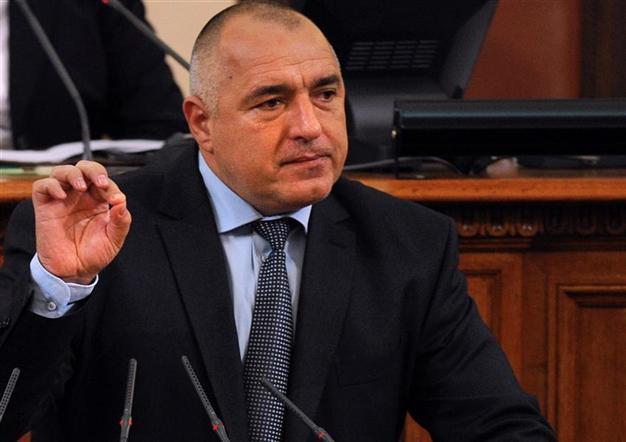Bulgaria’s Borisov accuses Turkish politician of murder plot
SOFIA

Outgoing Bulgarian Prime Minister Boyko Borisov speaks to lawmakers in Parliament in Sofia on Feb 21. AFP PHOTO / NIKOLAY DOYCHINOV
Outgoing Bulgarian Prime Minister Boyko Borisov, who resigned Feb. 20, has accused the former leader of a mainly Turkish party in the country of plotting an assassination attempt against him.Speaking at Parliament just minutes after the legislature accepted the resignation of his government with an overwhelming majority, Borisov said Ahmet Doğan, the ex-leader of the Movement for Rights and Freedom (HÖH), wanted him dead, citing a document from the intelligence agency of a foreign country.
“The intelligence agency of a partner country has provided documents, which clearly show that there were preparations for an assassination attempt on my life,” Borisov said in a short and emotional speech. Borisov directly accused Doğan of being the mastermind behind the assassination plot and called on Parliament to form an ad hoc committee to make the classified document public, Bulgarian news agency Novinite reported.
In response to Borisov’s claims, HÖH leader Lütvi Mestan condemned “the defamation of Doğan, an architect of the harmonized ethnic model in Bulgaria” by Borisov’s Citizens for European Development of Bulgaria (GERB) party, during his speech in Parliament, according to a statement sent to Hürriyet Daily News by the HÖH headquarters. Mestan told Parliament that “the ruling GERB party is trying to drag the country into an ethnic conflict.”
“I object to the ruling GERB’s attempts to involve the party founded by Doğan into political games. If the claims [of Borisov] were real, then it would be made public and the necessary measures would be taken,” said Mestan.
Might be defamation campaign: Expert
After Borisov’s resignation, President Rosen Plevneliev will now ask the three biggest parties if they want to form a government to rule until the parliamentary election is due in July. HÖH is closer to the Bulgarian Socialist Party and could grab a key position in possible coalition talks.
Both Borisov’s GERB party and the main opposition Socialists have said they have no interest in participating in a caretaker Cabinet, which could lead Plevneliev to schedule an election for as early as April.
Kader Özlem, an international relations specialists on the Balkans, told the Hürriyet Daily News yesterday that he believed that Borisov’s resignation stemmed from an understanding that he would not be re-elected as prime minister in the elections.
“The elections will be in the interest of the Socialists and the HÖH,” said Özlem, an academic at Trakya University’s Balkan Research Institute, adding that Borisov’s move might be a defamation campaign against Doğan to decrease the HÖH’s key role in the coming elections.
Özlem also said Borisov had failed to meet expectations in revealing those responsible for a failed assassination attempt on Doğan and that the outgoing prime minister may have tried to ease his conscious by accusing Doğan of masterminding an assassination attempt of his own.
















